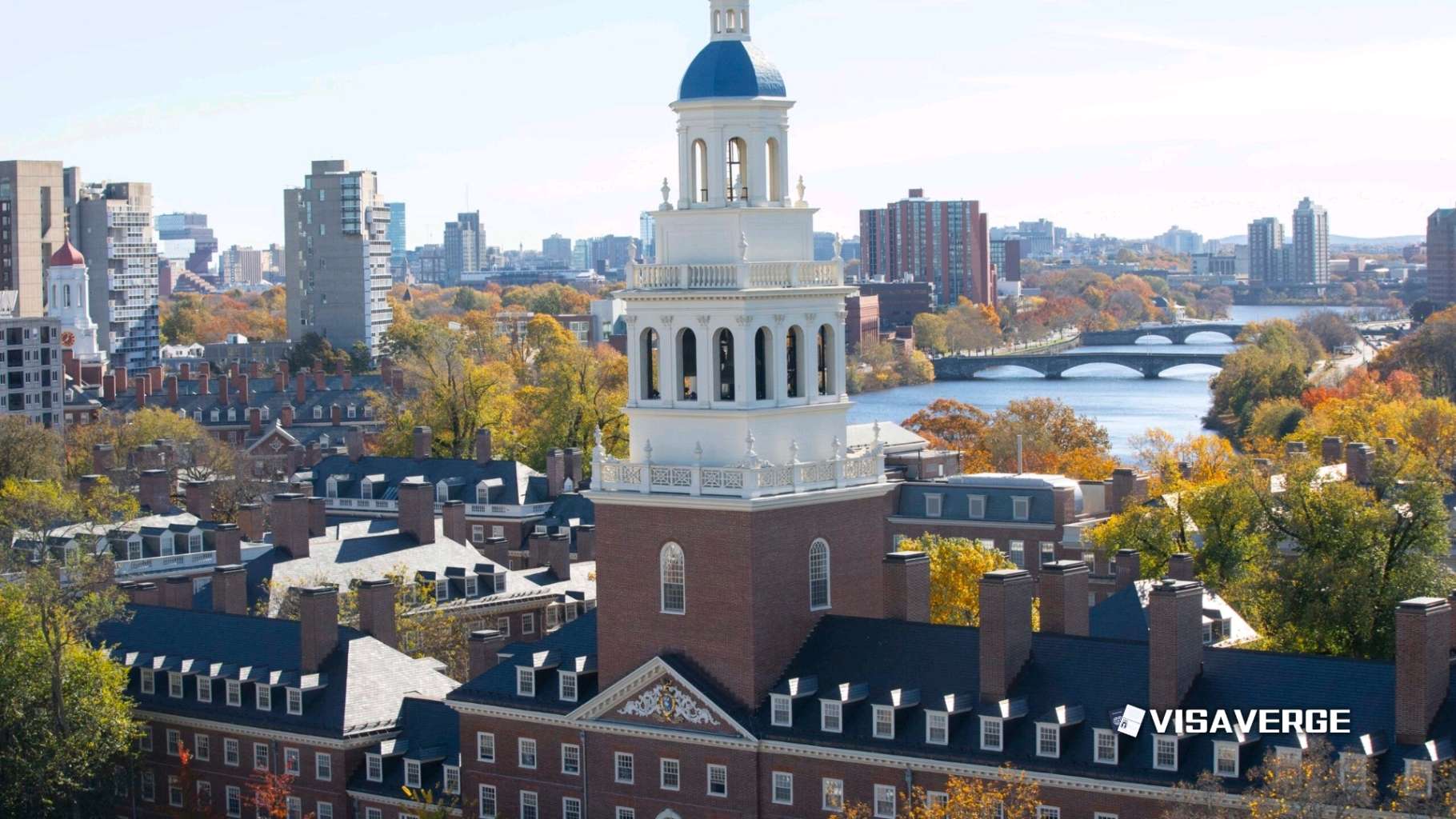(WASHINGTON, D.C.) The Trump administration said this week it secured a $500 million settlement with Harvard University, but the school has not confirmed any agreement, leaving finances, campus policy, and international student programs in limbo. As of October 1, 2025, there is no signed deal on the table and the facts remain contested.
President Trump announced on September 30 that Harvard would pay $500 million and launch trade‑school programs focused on artificial intelligence and other advanced skills, with Education Secretary Linda McMahon handling the final paperwork. But when pressed, he conceded the agreement was not yet “on paper,” and Harvard kept its distance, pushing back on the government’s claims and refusing to validate any settlement.

The gap between the White House statement and Harvard’s stance has real stakes for students, researchers, and employers across the United States 🇺🇸.
Dispute over facts and legal backdrop
Harvard has publicly challenged key parts of the administration’s narrative, especially findings related to antisemitism on campus that the university says misapplied the law and ignored steps already taken.
- Harvard President Alan Garber has denied that the school is actively negotiating a $500 million settlement and has emphasized that academic freedom is not up for bargaining.
- The administration has opened debarment proceedings that could make Harvard ineligible for federal funds or contracts — escalating pressure without producing a signed pact.
- A federal judge previously ruled that an attempt to strip more than $2 billion in research funding from the university was unlawful on constitutional and free speech grounds, creating legal headwinds against forcing concessions.
For now, there is no verified, finalized $500 million settlement between the Trump administration and Harvard University, despite the President’s public claim.
Immediate impacts on international students
The uncertainty affects international students first because their status often depends on funding, program stability, and employer demand after graduation.
- Harvard hosts thousands of F‑1 students whose studies and research may be tied to federal grants or labs.
- A temporary freeze could ripple through assistantships, stipends, and lab access.
- If debarment advances or programs are reshaped, students planning Optional Practical Training (OPT) could face fewer paid roles or delayed start dates — critical for maintaining status.
- Graduates aiming for the H‑1B route may see effects if research units pause hiring or employer partnerships tied to the university change.
This matter extends beyond Cambridge because the outcome will likely influence how other schools respond to federal pressure regarding campus speech, governance, and program design.
Funding fight and policy stakes
From the start, the White House framed the dispute as a push to retool higher education toward skills training, with AI and engineering front and center.
- President Trump said Harvard would fund new trade‑school programs while paying $500 million.
- Education Secretary Linda McMahon was named as the official to close out terms.
- Absent a signed instrument or Harvard acceptance, those terms are claims, not binding obligations.
University leaders have rebuffed the factual basis for the government’s accusations, citing legal errors and misrepresentations in the findings they’ve seen. The debarment track, which could block access to federal grants and contracts, raises risks for major research outfits, including labs that support foreign scholars and graduate students.
Potential consequences include:
- Budget impacts for research units
- Reduced advising capacity and longer time‑to‑degree for students dependent on lab work and teaching support
- Effects on local employers that source talent from Harvard and place graduates into internships and entry‑level roles tied to federal projects
The prior court ruling that blocked a $2 billion cut still matters because it sets limits on how far the government can go without solid legal footing.
Immigration impacts: F‑1, OPT, and H‑1B pathways
Even with no confirmed settlement, students can prepare by reviewing core rules and keeping paperwork current. Key action items:
- Confirm your SEVIS record and full‑time load each term with the Designated School Official (DSO).
- Keep your Form I-20 updated when funding or program dates change.
- For OPT:
- Apply on time with Form I-765 and maintain employment related to your major.
- School advisors can guide filing windows and reporting.
- See USCIS guidance for
Form I-765applicants here.
- STEM graduates on the 24‑month extension should keep training plans active and report changes quickly; extensions also use Form I-765.
- If you need more time in F‑1 status for research delays, speak with your DSO early about program extensions or reduced course loads tied to valid academic reasons.
- For change of status or extension inside the country, some cases use Form I-539; consult your DSO and legal counsel before filing. USCIS resources for
Form I-539are here. - H‑1B sponsorship requires employer filing of Form I-129; if university‑linked hiring pauses, seek employers outside campus networks and track cap timelines. USCIS
Form I-129page is here.
One government resource to monitor is the Department of Homeland Security’s Study in the States portal, which explains F‑1 requirements and school duties: here.
Practical guidance for students and employers
While the legal battle plays out, policy direction matters. The administration’s push toward career and technical education and public‑private training in AI and infrastructure could shift university priorities and create:
- New certificate pathways and employer partnerships
- More options in STEM‑heavy tracks and fewer options in areas with weaker workforce ties
- Increased compliance staffing for reporting, audits, and training — possibly slowing turnaround times for signatures and work checks
VisaVerge.com reports that funding shocks and policy swings often hit international hiring cycles on campus before showing up in national data, because labs may change offers quietly to avoid contract penalties. Students who line up backup roles early, including part‑time research in related fields, tend to maintain status through disruption better than those who wait for a single big offer.
Harvard’s pushback centers on legal process and academic freedom, not just money. By denying active talks over a $500 million settlement, President Garber signals the university won’t trade internal governance for relief from federal threats. That stance matters nationwide because it defines the line between lawful oversight tied to funds and improper interference with research, speech, and teaching.
Immediate risks and recommended steps
For foreign students, the immediate risk is confusion rather than deportation. Typical school reactions to high‑profile disputes include freezing approvals or adding extra reviews, which can:
- Slow CPT or delay OPT I‑20s
- Complicate travel signatures
- Increase processing times for recommendation letters and research approvals
Recommended practical steps:
- Plan buffers and avoid last‑minute filings
- Keep clear copies of all records: I‑94, pay stubs, offer letters, and advisor emails
- If a job is cut, report changes immediately and ask the DSO about grace periods, job search time, and whether remote or part‑time roles qualify
- Employers tied to Harvard contracts should review risks and:
- Prepare alternate worksites
- Separate funding sources where possible
- Keep LCA and filing calendars ready for H‑1B cases
- Coordinate early with legal counsel
What to watch next
- Any formal statement from Harvard University acknowledging or rejecting the reported terms. A joint statement with the White House would mark a significant shift.
- Any document filed in court or through an agency that shows terms, signatures, and dates — that is what converts a claim into a binding deal.
- Actions by Congress or the courts, since either could intervene if the fight escalates or if funding moves collide with constitutional limits.
- Guidance changes from agencies that touch students: Department of Education, Department of Homeland Security, and Department of State, because small policy shifts can alter how schools manage records and work approvals.
It matters that President Trump framed the dispute as almost done, saying the government just needed to “paper” the deal, because that creates a public impression of closure. Harvard’s refusal to echo that message undercuts claims of finality and signals that any resolution would likely follow formal talks, not public pressure alone.
Until either party files or signs something, the status quo holds: strong words, legal maneuvering, and heavy uncertainty for people whose studies and work rely on predictable rules.
Closing guidance for students and families
- Apply for OPT on time and keep job searches broad. Be ready to pivot to related roles that meet the field‑of‑study test.
- For cap‑subject H‑1B, assume standard cycles will continue and plan early; pauses in hiring can push start dates by months.
- Secure letters showing duties tie to your degree and keep copies for OPT reporting and H‑1B filings.
- Families should discuss contingency plans: program commitments, emergency funds, and travel decisions tied to graduation and work starts.
- If a lab closes or a grant pauses, know who can sign forms, how fast they can act, and what your fallback role would be.
In the background, the fight over Harvard is about who sets rules for what schools teach and how they spend federal funds. The White House has made workforce training in AI a headline goal and wants elite schools to lead under strict terms. Harvard’s reply suggests it will not accept conditions it believes violate law or undermine academic freedom, even if that choice brings more pressure.
For now the bottom line remains: there is no confirmed $500 million settlement between the Trump administration and Harvard University. People who study and work there should plan for delays, ask for written confirmations, and keep their documents current. Harvard’s next public step — whether a denial or a draft — will determine whether this standoff stays political theater or becomes binding.
This Article in a Nutshell
The Trump administration announced a purported $500 million settlement with Harvard University on September 30, 2025, tying the payment to new trade‑school programs in AI and advanced skills. Harvard denies any signed agreement and disputes factual findings cited by the government, especially allegations about antisemitism. The administration has initiated debarment proceedings that could block federal grants and contracts, creating risks for research labs, assistantships, stipends, and international students on F‑1 visas who rely on OPT and potential H‑1B sponsorship. Students should verify SEVIS records, update I‑20s, file Form I‑765 on time, maintain documentation, and coordinate with DSOs and legal counsel. Until formal documents are filed, the claim remains unverified and uncertainty persists across campus programs and employer partnerships.













